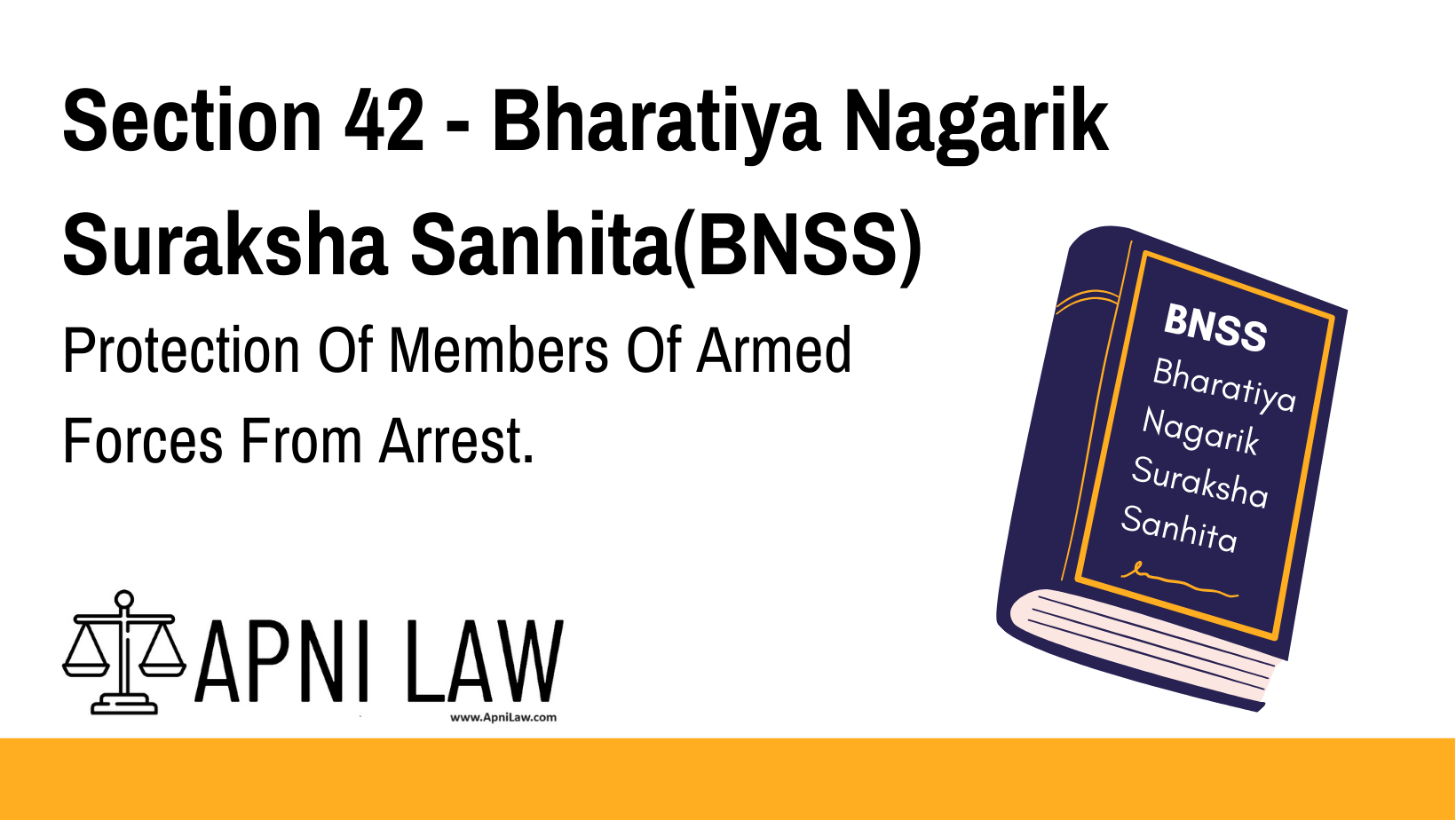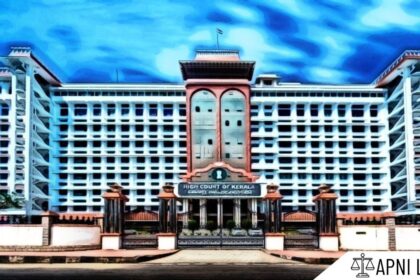Code:
(1) Notwithstanding anything contained in section 35 and sections 39 to 41 (both inclusive), no member of the Armed Forces of the Union shall be arrested for anything done or purported to be done by him in the discharge of his official duties except after obtaining the consent of the Central Government.
(2) The State Government may, by notification, direct that the provisions of sub-section (1) shall apply to such class or category of the members of the Force charged with the maintenance of public order as may be specified therein, wherever they may be serving, and thereupon the provisions of that sub-section shall apply as if for the expression “Central Government” occurring therein, the expression “State Government” were substituted.
Explanation:
This section deals with the arrest of members of the Armed Forces of the Union and certain members of the Force charged with maintaining public order. It states that:
- Section 42(1): No member of the Armed Forces of the Union can be arrested for anything done in the line of their official duty without the consent of the Central Government. This applies even if the action is alleged to be illegal or wrongful, as long as it is claimed to have been done in the discharge of official duties.
- Section 42(2): The State Government can, by notification, extend the protection of Section 42(1) to specific classes or categories of personnel within the Force charged with maintaining public order. In such cases, the State Government’s consent would be required instead of the Central Government’s.
Illustrations:
Imagine a soldier in the Indian Army is deployed in a conflict zone. He/she is accused of firing on a civilian. Under Section 42(1), he cannot be arrested without the Central Government’s consent. This is because the action is claimed to have been done during the course of his duty.
Common Questions and Answers:
Q1: Why is this protection provided to members of the Armed Forces?
A1: This protection is intended to ensure that members of the Armed Forces can carry out their duties effectively. Also, without fear of arbitrary arrest. It is meant to prevent undue interference with the military’s operations.
Q2: What happens if a member of the Armed Forces is arrested without the required consent?
A2: Such an arrest would be deemed illegal. The person arrested may be able to seek relief through legal means. The court may order the release of the individual.
Q3: What are the criteria for the Central/State Government to grant consent for arrest?
A3: The law doesn’t specify any specific criteria, but the government will likely consider the nature of the alleged offence. Additionally, the evidence available and the potential impact on national security or public order.







